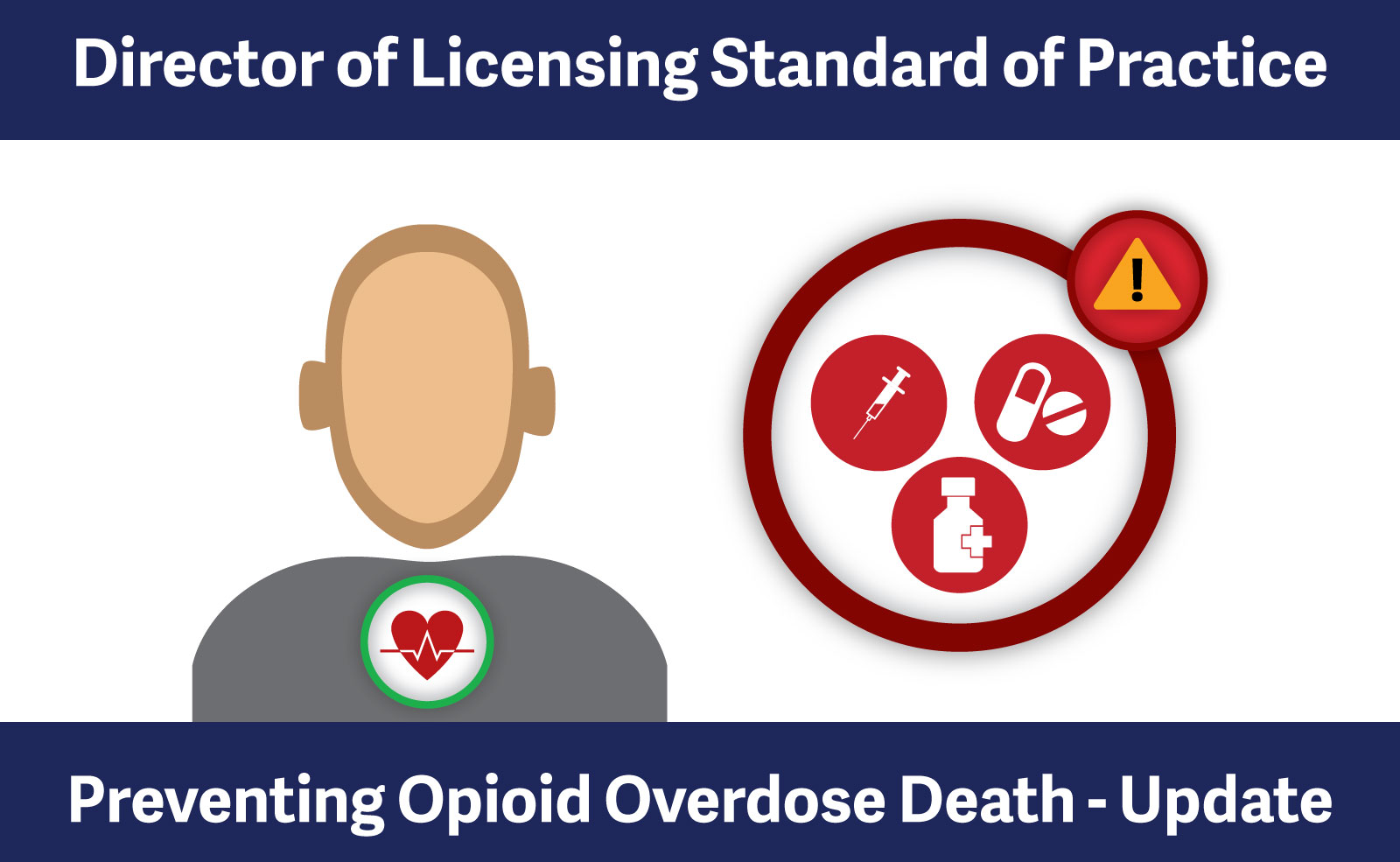Director of Licensing Standard of Practice: Preventing Opioid Overdose Deaths - Update
On November 28th 2017, BC’s Director of Licensing updated the Standard of Practice for the Prevention of Opioid Overdose Deaths in Community Care Facilities. These changes were minor in nature - they reflect the evolving nature of this issue, and provide further clarification on requirements.
Over the past few years, BC has experienced an unprecedented number of opioid overdose deaths across the province. In response to the high number of overdose deaths occurring, Provincial Health Officer Dr. Perry Kendall declared a public health emergency in April 2016. In the first nine months of 2017, there have been over 1,100 deaths as caused by opioid overdoses – a significant increase from the 986 deaths that occurred in 2016.
The updated Standards of Practice helps to ensure that licensed community care facilities providing residential care to those at risk of opioid overdose take appropriate steps in both prevention and response to overdoses in their facilities.
Updated Standards of Practice:
- Operators of licensed community care facilities that provide care to persons who are at risk of an opioid drug overdose must obtain and maintain a supply of naloxone and associated supplies for safe administration for emergency use in the event that a person in care suffers from an opioid overdose.
- Section 70 (1) of the Residential Care Regulation, which requires that “…only medications that have been prescribed or ordered by a medical practitioner or nurse practitioner are administered to persons in care” must not be interpreted as a barrier to administering naloxone to a person who is suffering from an opioid overdose. This means that Naloxone may be administered to a person in care who is suffering from an opioid overdose as per the facility’s Naloxone Administration policy developed under the direction of the operator’s Mediation Safety and Advisory Committee and in collaboration with a physician, as naloxone is no longer a prescription medication when used for opioid overdose emergencies
- Operators must receive training in the administration of naloxone from a qualified health care professional, and must ensure that their staff also receives appropriate training to administer naloxone and to provide first aid appropriate to the situation. Operators must also ensure that trained staff is available at all times to administer naloxone to persons in care when persons in care are on the premises of the licensed facility or away from the premises and remain under the care of facility staff.
- Operators must ensure that whenever naloxone is administered, first aid, including artificial respiration is provided, and that 911 is called immediately.
- Operators must report any overdose requiring the administration of naloxone as a reportable incident under the category of Poisoning which is defined “…the ingestion of a poison or toxic substance by a person in care.”
The updated Standards of Practice for Preventing Opioid Overdose can be viewed online here.
|
Please visit the following link for a list of community pharmacies in BC that carry naloxone and provide overdose response training: BC Government: Community Pharmacies carrying naloxone and training on administration in BC. Pharmacies interested in being added to this list can contact [email protected] |
Background
In order to combat the significant increase of opioid-related deaths in Canada, on March 22, 2016, Health Canada revised the Federal Prescription Drug List to make a non-prescription version of Naloxone more accessible to Canadians. Following this decision, the College of Pharmacists amended BC’s Drug Schedules Regulation to classify non-prescription naloxone as a Schedule II drug.
Building on this, in September 2016, the College of Pharmacists of BC changed the status of naloxone again, making it unscheduled, which allows it to be more widely accessible.
The Health Professions General Regulation includes an “exception for opioid overdose” which authorizes all health professionals to administer emergency use naloxone, even when administering a drug may not be within their scope of practice.
While the rate of overdose deaths continues to climb, countless lives are being saved by community members and first responders through the rapid administration of Naloxone.
Additional Resources
- Emergency Use Naloxone in British Columbia (College of Pharmacists of BC)
- Community Pharmacies that carry naloxone and provide overdose response training in BC (BC Government)
- Facility Overdose Response Box (Toward The Heart)
- BC Take Home Naloxone Program (Toward The Heart)
- SAVE Me Protocol (Toward The Heart)
- Opioid overdose crisis, Opioids

 Share
Share



